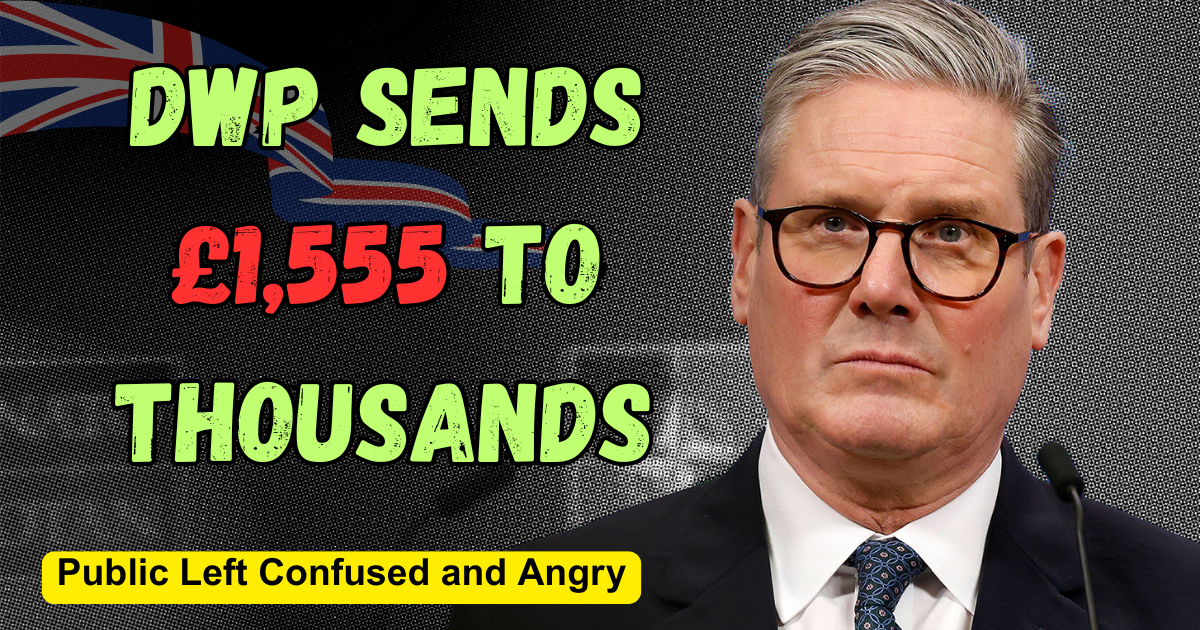DWP Sends £1,555 to Thousands—Public Left Confused and Angry Thousands of parents and families across the UK are receiving urgent notices from the Department for Work and Pensions (DWP). These letters warn that both Child Tax Credits and Working Tax Credits will officially end on April 5, 2025. The move is part of the DWP’s managed migration plan to transfer all recipients of legacy benefits onto Universal Credit by March 2026.
DWP Sends £1,555 to Thousands
DWP sends out letters that could land you with a £5,000 penalty: If you recently received a letter from the Department for Work and Pensions (DWP), you are not alone. The DWP is currently sending out warning letters that could result in penalties of up to £5,000. These letters are part of a board crackdown on benefit fraud and unreported changes in circumstances, and understanding what they mean is crucial for anyone receiving economic support in the UK.

Receiving a letter from the DWP about a potential fine can be scary, but it does not have to lead to penalties if you act quickly and responsibly. Staying organised, reporting changes promptly, and seeking advice when in doubt can protect you from costly mistakes.
Why is the DWP sending these letters?
The DWP is responsible for managing benefits payments to millions of UK residents. To ensure the integrity of the system, the department regularly reviews claims to detect potential fraud.
In many cases , the issue is not deliberate fraud.
- Getting a job or charging working hours
- Moving in with a partner or having someone move in
- Receiving additional income , like inheritance, gifts, or investments
- Changes in physical or mental health conditions
- Alterations to your childcare responsibilities or the needs of someone you care for.
These cheques are not currently new, but they have come in recent years. The DWP uses sophisticated data-matching technology to compare your records with HMRC, local councils, and other government databases.
Who is most in risk
Although anyone claiming benefits can potentially receive these letters, certain groups face a higher risk due to the complexity or variability of their financial and personal lives.
1. People With Changing work status
Freelancers, gig workers and those with 0-hour contracts may see their income fluctuate. Each change should be reported to avoid discrepancies.
2. Couples who have Recently Moved in Together
In the UK If your partner moves in, your household income and situation change. The DWP treats you as a couple for means-tested benefits, even if your partner doesn’t contribute economically
3. Carers or those getting Carer`s Allowance
For the state pension, working more than 21 hours per week or earning above the income threshold can disqualify you from Carer’s Allowance, even temporarily.
4. Retirees on pension Credit
Extra pension income, rent from lodgers or investment gains can alter your entitlement and must be declared.
5. Claimants with Disabilities or Health Conditions
Improvement in health, changes in mobility, or not attending scheduled medical assessments can lead to reassessment and reduce your support to the people.
6. UK people Living Abroad Temporarily
Many benefits require you to be physically present in the UK. And if you spend extended time abroad without notifying the DWP, your eligibility could be affected in the UK.
What happens if you avoid the letter?
- Fines up to £5,000 for failing to report changes or cooperating with investigations
- Repayments of paid benefits of the letter, even if the overpayment was unintentional
- Suspension or termination of benefits while an investigation is ongoing
- Court proceedings or prosecution in cases involving fraud or deliberate deception
- According to GOV.UK, penalties may apply even if the department or overpayment was not intentional, especially when the claimant did not take reasonable steps to report changes.
Conclusion
In this article we discussed the DWP Sends £1,555 to Thousands—Public Left Confused and Angry Thousands of parents and families across the UK are receiving urgent notices from the Department for Work and Pensions (DWP). In the UK, if your partner moves in, your household income and situation change. There is no time limit, but the best practice is to report changes immediately. Delays, even if unintentional, can lead to problems. The DWP is responsible for managing benefits payments to millions of UK residents. For more information, you can visit the official website.


